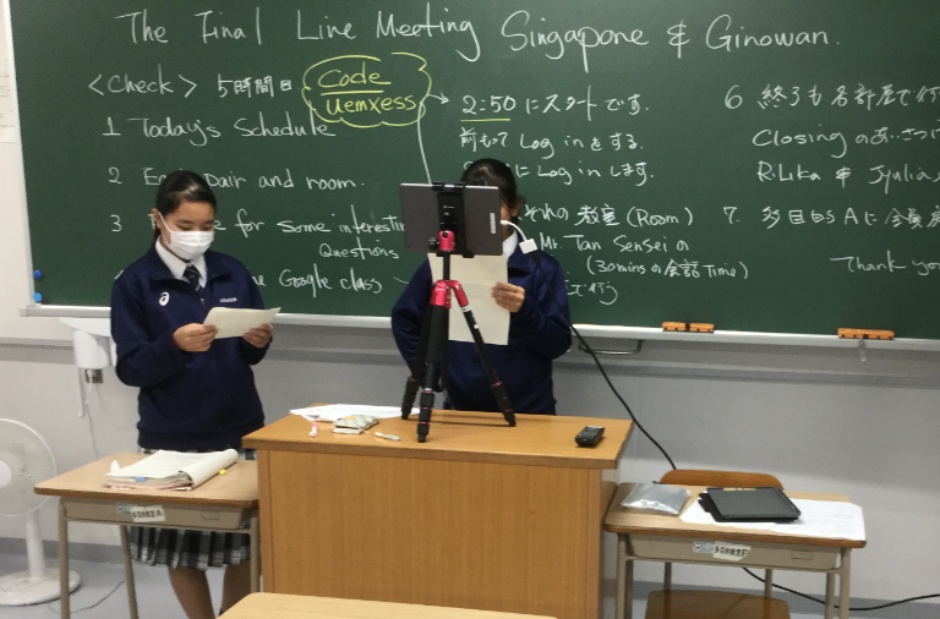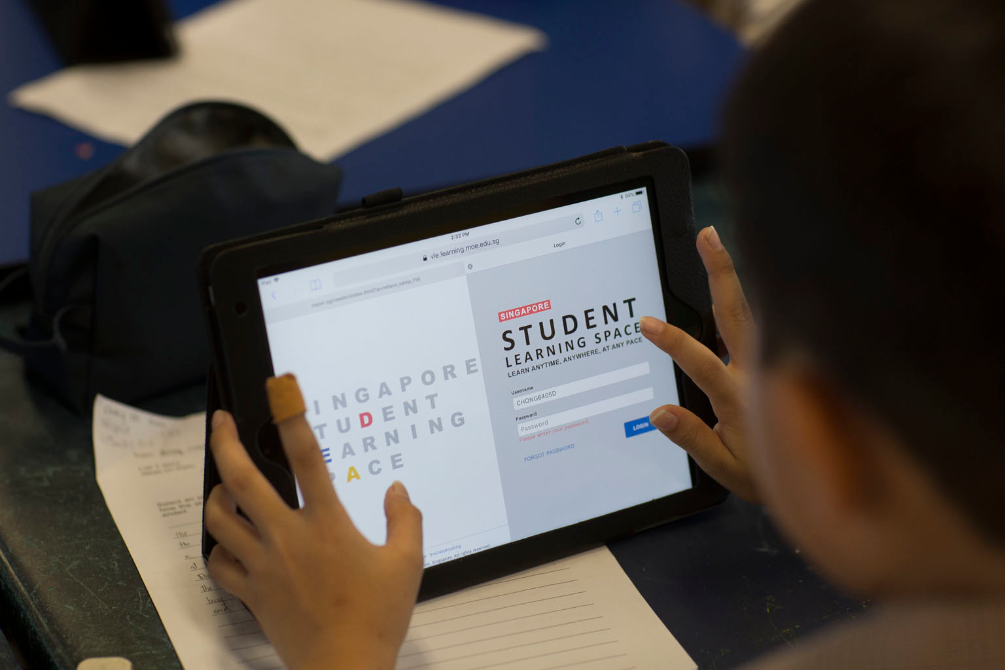As the number of COVID-19 cases rose in Singapore last year, a group of students and teachers from Kranji Secondary School were anxiously monitoring the situation. The students had been looking forward to hosting their peers from Ginowan Senior High School, who would be flying in from Okinawa, Japan, for an exchange programme in August. As border closures kicked in, it seemed inevitable that the highly anticipated exchange would be cancelled.
Thanks to the perseverance of the teachers from both schools, the programme was able to continue, albeit in a virtual format.
Mr Desmond Tan, who oversaw the exchange programme, says, “We believe that international exposure is crucial in building the students’ global awareness. Such experiences give our students the chance to learn about different cultures and practise collaborating with people from different backgrounds. This will be useful in school, and ultimately in work settings.”
It helped that the students and staff have gotten used to online lessons and interactions during Full Home-Based Learning in April 2020. Wasting no time, teachers from both schools worked out a plan for a virtual school exchange.
“Students can use technology to engage their peers from our partner schools overseas,” says Mr Tan. “Their international experience need not be cancelled, even if the format is different. We can bring the world into the classroom!”
New connections, new possibilities
A surprise benefit of the virtual overseas exchange was the possibility of allowing more students to take part, and run this over a longer period of time. From the original one-week school visit, the programme was expanded to a five-month activity involving 29 Sec 3 students from Kranji Secondary. These students were selected based on their interest in the Humanities, and included students from both the Express and Normal streams.
From July to November 2020, the students met their Japanese buddies via video conference and exchanged video diaries about the cultures in Singapore and Japan, their school life, and how they were coping with the Covid-19 pandemic.
Danisya, a Sec 3 student, was proud of the videos she created to showcase Singapore’s culture and her neighbourhood. “I am glad that I picked up video-editing skills,” she says. “Now, I can put a simple video together, incorporate music, and insert subtitles and annotations!”

Screengrab from Danisya’s video introducing her neighbourhood of Bukit Panjang to her peers in Ginowan High School.
The exchange was not without its challenges, but overcoming them was part of the learning process.
Sec 3 student Bryan Tan learned to overcome initial language barriers during the live video conferencing. “It was not easy to put across my views succinctly to my Japanese peers. I also started to learn basic conversational Japanese and used a mobile application to find out how to properly pronounce words, such as ‘Kemisutorī’ which means Chemistry.”
He adds, “Although we can’t meet face-to-face, we enjoyed making new friends from Japan. I also found out more about Singapore and Japan’s relations. For example, I was amazed to learn through my research that Japan is Singapore’s third largest investor! I’m really thankful for this opportunity.”
Ms Bernadine Lim, a teacher from Kranji Secondary says, “Such skills are highly relevant since online meetings have become more prevalent in workplaces around the world today. As digital natives, the students were able to use various tech tools creatively to collaborate and exchange ideas.”
The Japanese students and staff also valued the interactions made possible by this virtual exchange. Ms Keiko Oshiro, an English Language teacher in Ginowan Senior High, says, “It is important to create an environment where students can actually use English outside of classroom. This online exchange program was a great opportunity to do so.”
.jpg)
The students from Kranji Secondary (left), and their Japanese counterparts (right) during a live video conference.
Singapore in the world
Through the exchange with Ginowan Senior High, Kranji Secondary was also invited to the International Conference for High School Students in September 2020. The theme of the conference was “Towards World Peace”, organised by a non-profit organisation based in Okinawa to encourage students around the world to interact and exchange ideas.

Participants at the 2020 International Conference for High School Students.
Brandon Yap, one of the five Sec 3 students who attended this conference, says, “Exchanging ideas help us understand each other, especially in the current Covid-19 situation when international collaboration is needed to bring together the best minds and research techniques. For instance, Singapore must rely on other countries to obtain the vaccines.”
Despite going virtual, internationalisation programmes are no less meaningful than a physical one. Students continue to learn the importance of having an open mind in these cross-cultural exchanges and demonstrate initiative in tackling challenges. They also shared their takeaways with the rest of the school during assembly.
The COVID-19 pandemic may have disrupted many established norms and processes that we are used to. But it also offers our students the chance to pick up new skills, broaden their perspectives and appreciate the interconnectedness of the world we live in.
That’s one more way our classrooms are evolving amid this crisis.





.jpg)
